G-Protein Coupled and Enzyme-Linked Receptors
1/14
There's no tags or description
Looks like no tags are added yet.
Name | Mastery | Learn | Test | Matching | Spaced |
|---|
No study sessions yet.
15 Terms
What is a metabotrophic receptor?
A receptor in which a chemical is involved in the transduction pathway.
Outline the structure of a GPCR
-Single polypeptide
-7 transmembrane domains (alpha helices)
--Bind to a G-protein (alpha, beta, gamma)
-Ligand binds to either the extracellular domain or within the transmembrane domain
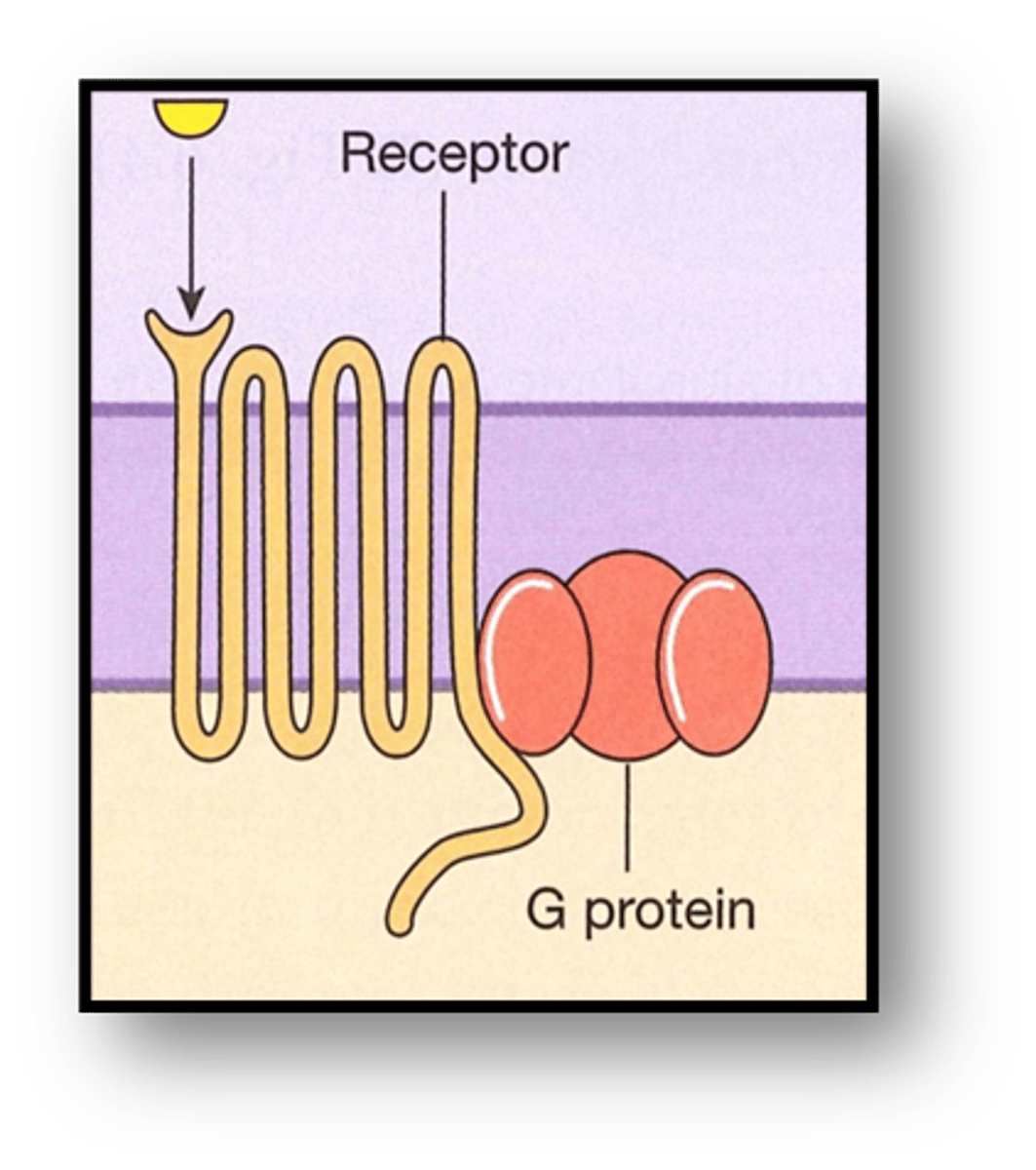
What are the main enzymes that are activated by GPCRs?
-Adenylate cyclase
-Guanylate cyclase
-Phospholipase C
What action is cAMP generally associated with?
-Activation of response
-Deactivation of response
What action is cGMP generally associated with?
-Deactivation of response
What are GPCRs?
G-protein coupled receptors:
-Responsible for the function of many processes in the body
-40% of all modern drugs target GPCRs
Outline the GPCR cycle
1) Drug, endogenous mediator binds to GPCR
2) This causes a conformation change in the alpha helices of the GPCR
3) Nearby GTP activates the alpha portion of the G-protein causing it to fall away
4) Beta-gamma subunit moves across the membrane and the alpha subunit with GDP attached(of the G-protein) binds to its specific enzyme
5) After activating the enzyme, the alpha sub-unit cleaves off the attached GDP and it returns to the Beta-gamma subunit embedded in the membrane
6) The G-protein subunits rejoin the GPCR and the cycle can restart
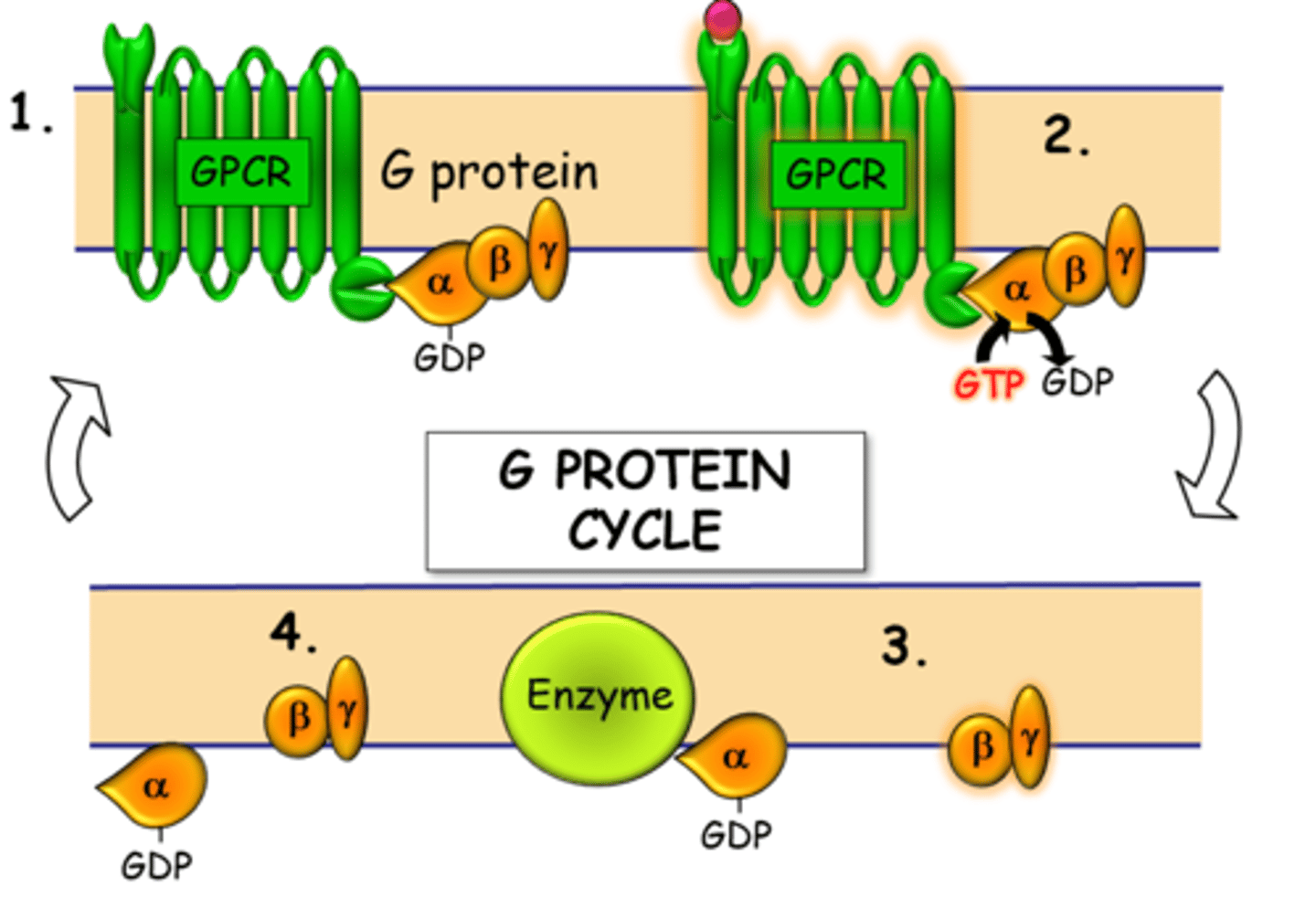
What are the two main mechanisms of activating a protein?
-GTP binding to G proteins
-Phosphorylation of a protein directly by a kinase enzyme
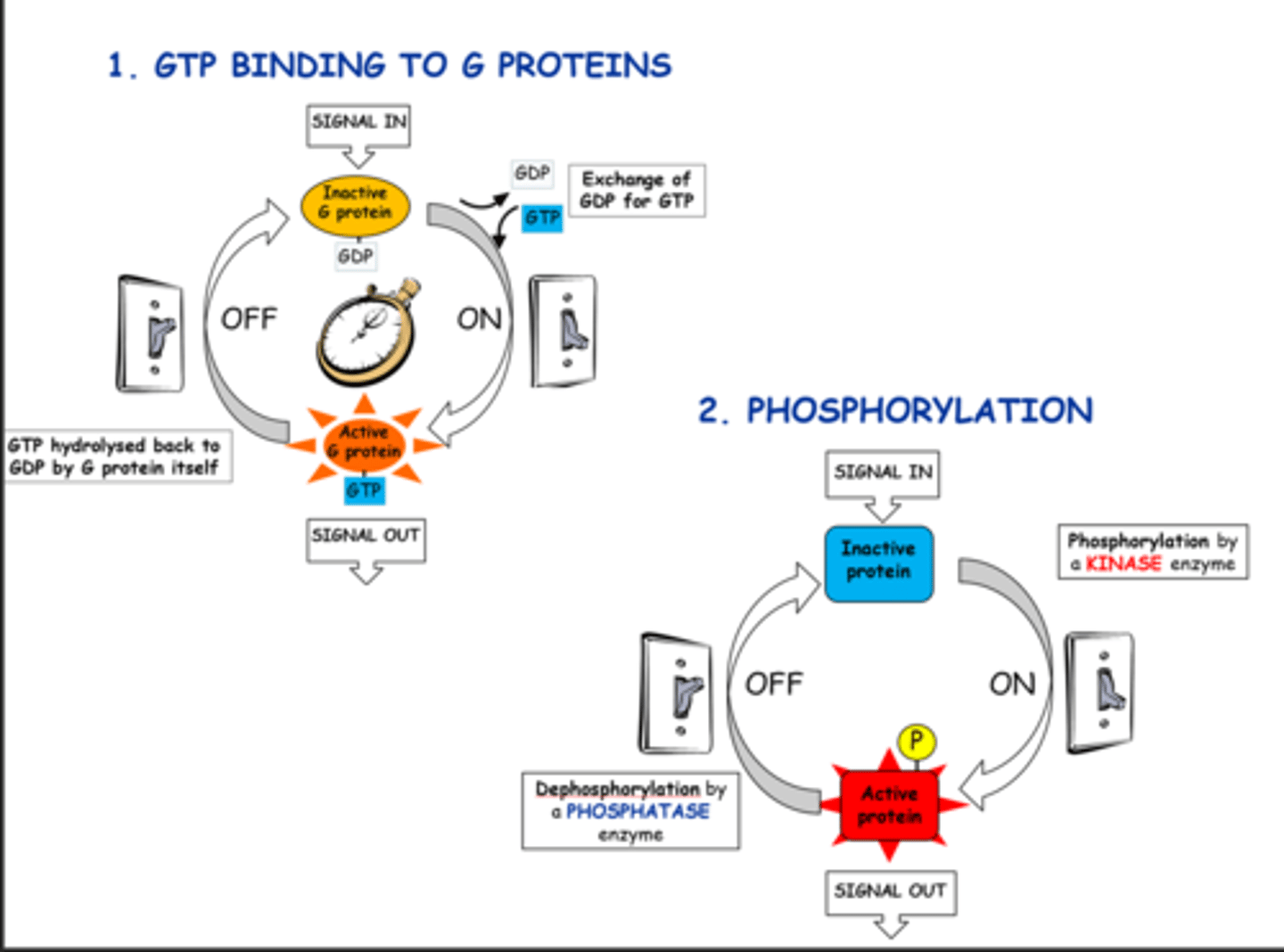
Using asthma as an example, explain how GPCRs are involved in bronchodilation because of exogenous noradrenaline
-Exogenous noradrenaline binds to the GPCR binding site
-Causes G-protein cascade to activate myosin kinase
-This causes bronchodilation
What is the problem with treating asthma with exogenous noradrenaline?
Noradrenaline is capable of binding to multiple adrenoreceptors which cause other effects (other than bronchodilation) that can be dangerous to the treated animal.
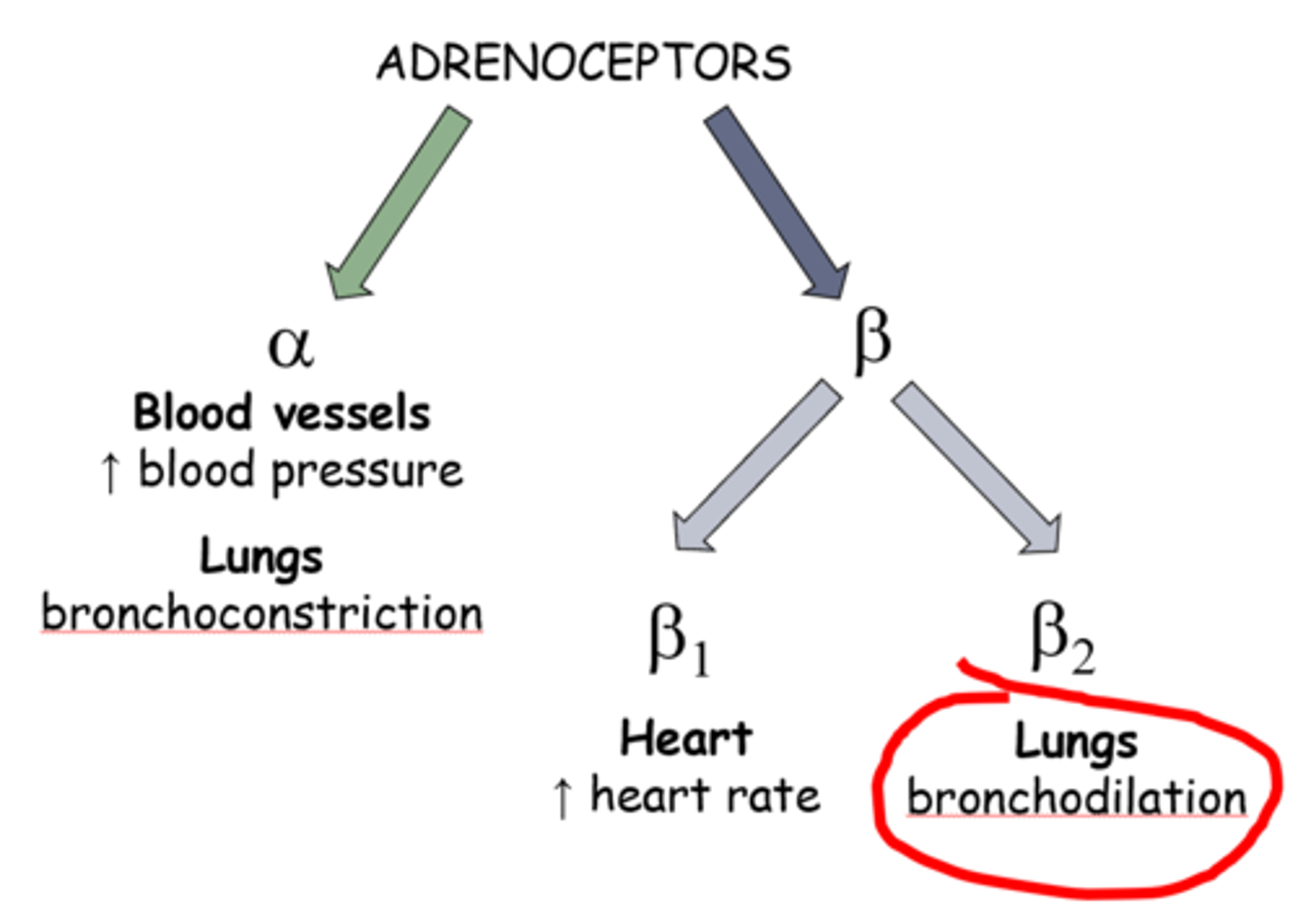
What is a structure-activity relation used for?
Used to predict biological activity from molecular structure
What are enzyme-linked receptors?
transmembrane proteins that bind a hormone signal and directly catalyse a reaction inside the cell.
Describe the structure of a kinase-linked receptor
-Binding domain externally (alpha subunit)
-Kinase domain internally (beta subunit)
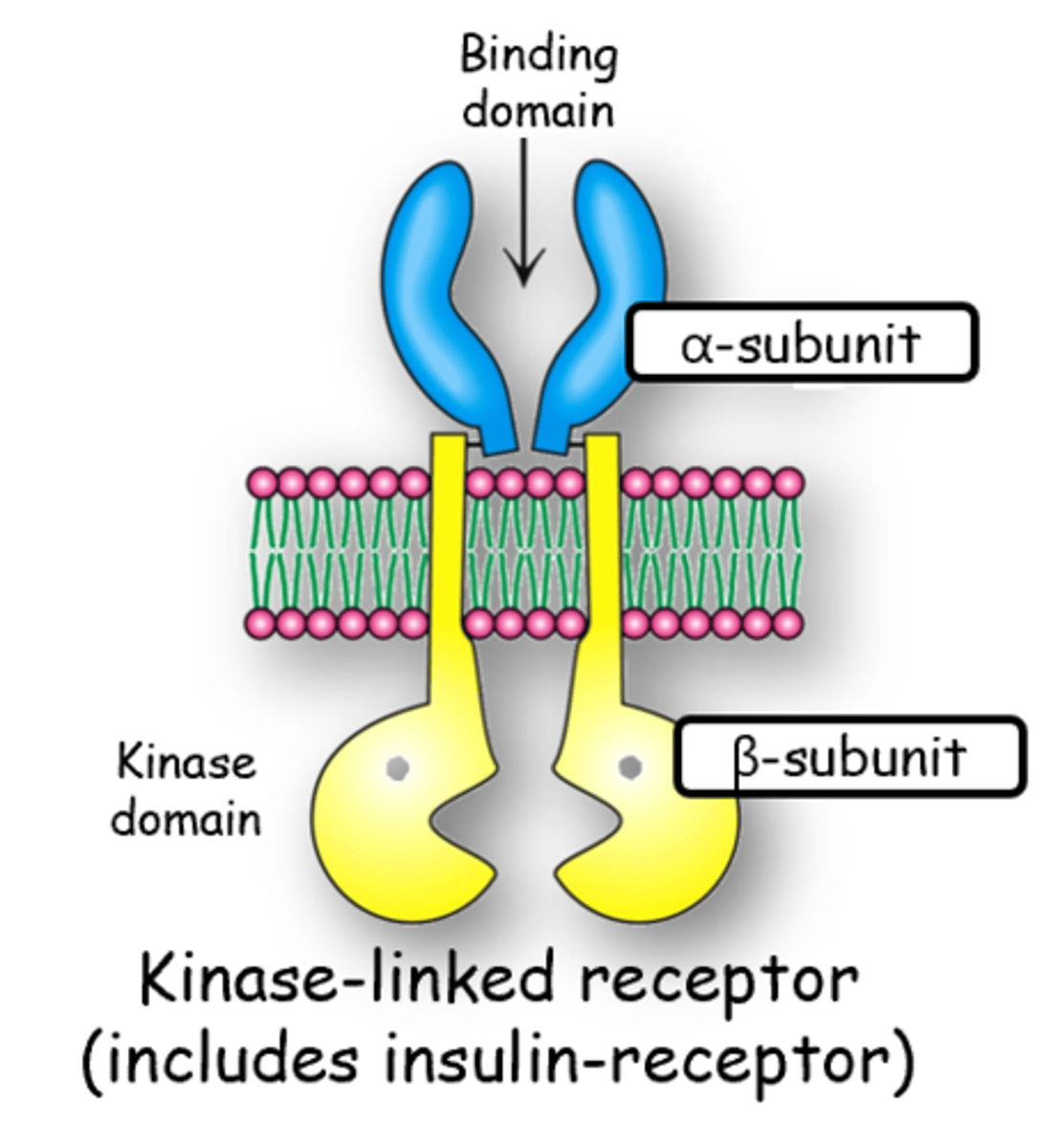
How does a kinase-linked receptor work?
-Ligand binds to binding domain on two separate receptors of the same family
-This causes them to shift together
-They then phosphorylate eachother to active eachother
Give an example of an enzyme-linked receptor
Insulin receptor.